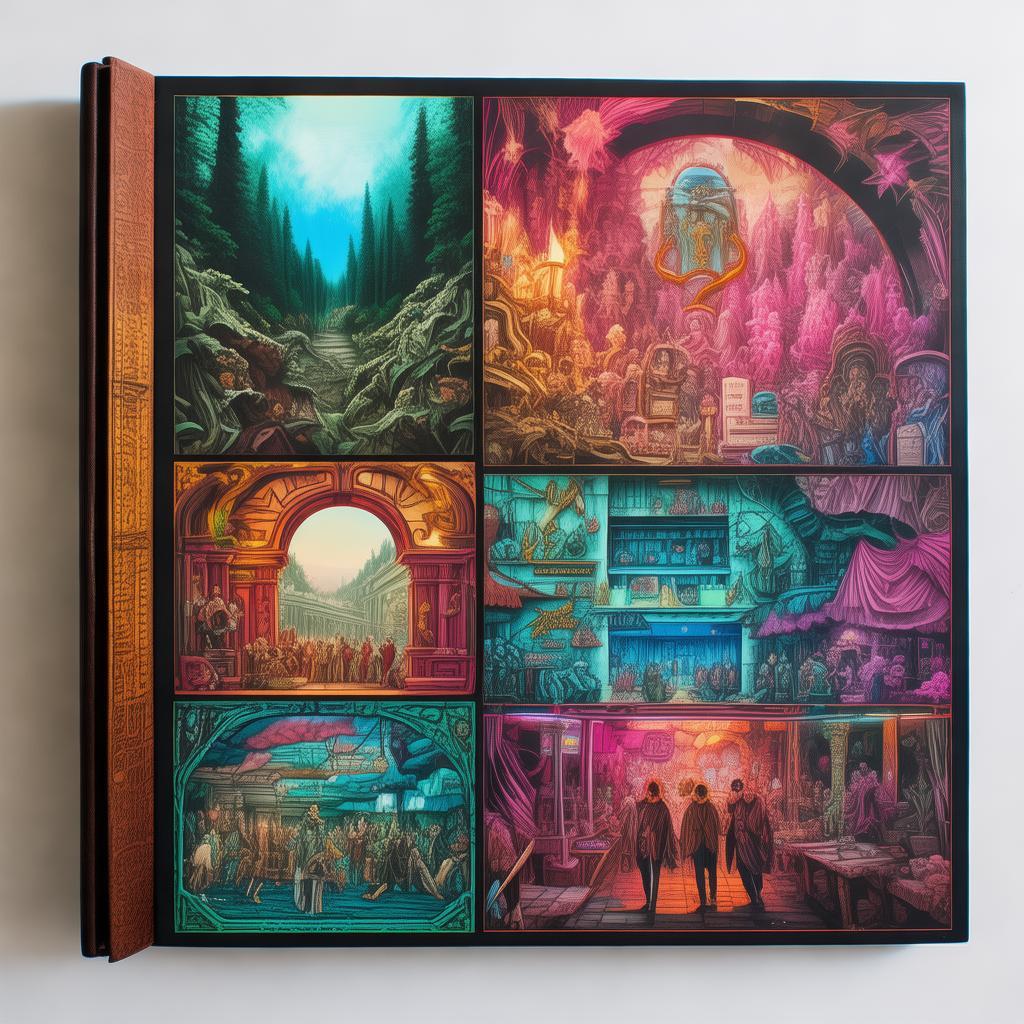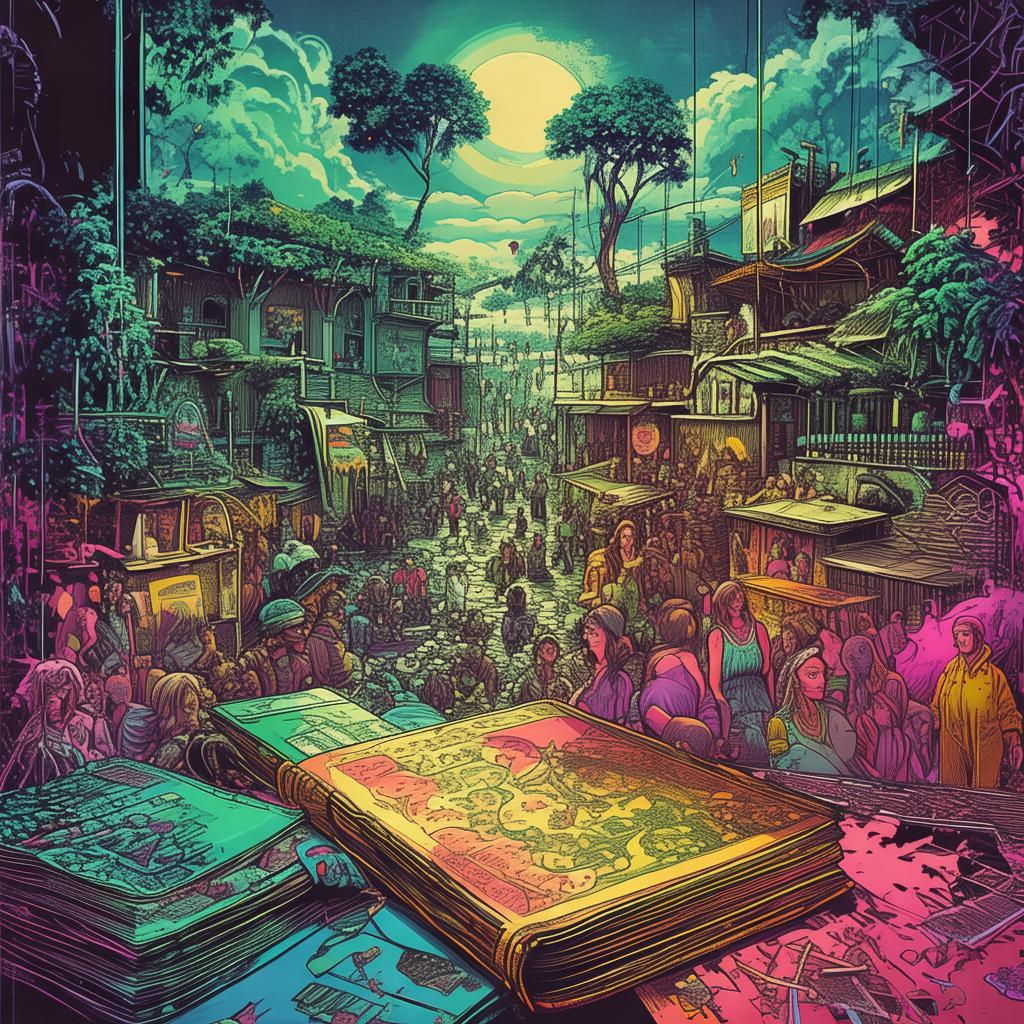The Silent Revolution
In the heart of a bustling metropolis, the once serene campus of the National University of Unity was now a hotbed of unrest. The students, led by a charismatic young leader named Liu Wei, had been organizing a series of peaceful protests against the oppressive regime. The slogan of their movement was simple yet powerful: "The Youth's Awakening."
Liu Wei was a second-year engineering student with a keen mind and a fiery spirit. He had grown up in a family that had suffered under the regime, and he was determined to fight for a better future for his generation. His speeches were filled with passion and hope, and he had quickly garnered the support of his fellow students.
One crisp autumn morning, Liu Wei stood in front of the gathered crowd, his voice echoing through the campus. "My friends, the time for silence is over. We will no longer stand by while our rights are trampled upon. It is time for us to rise up and demand change!"
The students cheered, their resolve strengthened by Liu Wei's words. But the regime was not to be taken lightly. They had their own plans to suppress the uprising.

The following week, as the protests gained momentum, the regime responded with brute force. They sent in the riot police, who clashed with the students, leaving a trail of injured and tear gas canisters in their wake. The situation quickly escalated into chaos.
Liu Wei, witnessing the violence firsthand, felt a surge of anger and determination. He knew that the time for peaceful protests was over. "Enough!" he shouted, his voice cutting through the chaos. "We will not be silenced!"
That night, Liu Wei and a small group of his most trusted allies met in a hidden underground room. They discussed their next move, knowing that the regime would not stop until they were broken. "We need to escalate our tactics," Liu Wei said. "We need to show them that we are not just a group of students; we are a force to be reckoned with."
The group agreed, and they began to plan a series of covert actions. They distributed flyers, calling for a general strike across the city. They organized underground meetings, spreading the word through word of mouth and secret networks. And they began to stockpile supplies, preparing for the inevitable crackdown.
As the days passed, the protests grew larger and more intense. The regime's response became more desperate, leading to a city on the brink of anarchy. Stores were looted, streets were blocked, and the police were stretched thin. The government's once-iron grip on the population was beginning to slip.
In the midst of the chaos, Liu Wei found himself at the center of the storm. He was the face of the rebellion, the symbol of hope for a generation. But as he stood in the middle of a street filled with burning cars and tear gas, he couldn't help but feel a sense of dread.
"What have we done?" he asked himself, looking around at the destruction. "Have we brought about change, or have we just created more chaos?"
As the days turned into weeks, the rebellion showed no signs of slowing down. The regime, realizing that they were facing a losing battle, began to negotiate with Liu Wei and his allies. They offered concessions, promising political reforms and greater freedoms for the people.
Liu Wei, torn between the promise of change and the cost of the chaos he had helped to create, knew he had to make a difficult decision. He knew that the future of his country was at stake. He knew that the lives of his friends and fellow activists were on the line.
After much contemplation, Liu Wei agreed to meet with the regime's representatives. The negotiations were tense, but ultimately, they reached an agreement. The regime would release political prisoners, hold new elections, and implement a series of reforms that would lead to greater freedom and democracy.
As the news spread, the city erupted in celebration. The streets were filled with people, dancing and singing, their joy echoing through the night. Liu Wei stood among them, his heart swelling with pride and relief. He had fought for a better future, and he had won.
But as he looked around at the faces of his fellow activists, he realized that the struggle was far from over. The fight for true democracy would continue, and he would be there to lead the charge.
The Silent Revolution had changed the course of history, but it was only the beginning. Liu Wei and his fellow activists knew that the true test of their success would come in the years to come. And they were ready to face whatever challenges lay ahead.
The youth had awakened, and the world had taken notice.
✨ Original Statement ✨
All articles published on this website (including but not limited to text, images, videos, and other content) are original or authorized for reposting and are protected by relevant laws. Without the explicit written permission of this website, no individual or organization may copy, modify, repost, or use the content for commercial purposes.
If you need to quote or cooperate, please contact this site for authorization. We reserve the right to pursue legal responsibility for any unauthorized use.
Hereby declared.









